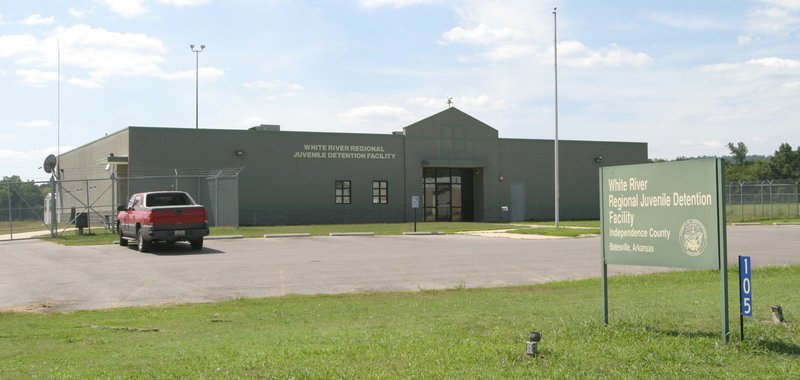A federal jury Tuesday cleared two former jailers at a youth lockup in Batesville of all charges that they faced in the pepper-spraying of juvenile detainees between June 2012 and July 2014.
The jury of 11 men and one woman deliberated for four hours before acquitting Will Ray, 27, and Thomas Farris, 48, who were jointly accused of conspiring to deprive detainees of their constitutional rights to due process, and to be free from cruel and unusual punishment. Each man also faced a single count of willfully violating an inmate's civil rights.
"Obviously, we are very grateful to the jury for their careful consideration of the evidence," one of Ray's attorneys, Bill Bristow, said as he drove back to Jonesboro after the verdict. Bristow and Barrett Moore of Batesville represented the former jailer, who is now a college student, in a trial that began a week and a day earlier in the Little Rock courtroom of U.S. District Judge Billy Roy Wilson.
"We are just elated," echoed Attorney Nicki Nicolo of North Little Rock, who represented Farris with assistance from attorney Tamera Deaver, also of North Little Rock. Nicolo added that Farris, who also is no longer a corrections officer, "is happy and relieved to get back to his life and his family, and to be able to celebrate Christmas without this hanging over his head."
Attorneys at the U.S. Department of Justice's Civil Rights Division filed the case against Ray and Farris last year, after two of the men's supervisors were indicted and then pleaded guilty to violating the civil rights of detainees.
The county-run facility houses up to 75 youths between the ages of 5 and 21 who have either been adjudicated delinquent or are being held on a Family In Need of Services petition after experiencing problems at home. On any of three round-the-clock shifts, there were four to five jailers on duty for a jail population that consistently hovered around 50, according to testimony.
Ray and Farris contended that they merely followed the orders of Capt. Peggy Kendrick, who ran the facility, and Lt. Dennis Fuller, who directly supervised the jailers.
Ray testified to that effect, saying it was hammered into him that if jailers didn't operate a tight ship, an otherwise minor incident could quickly escalate into a situation that was dangerous for other detainees as well as jailers.
Prosecutors argued that even if the jailers were following Kendrick's and Fuller's orders, they knew better than to use pepper spray, stun guns and restraint chairs as punishment, yet did it anyway. Neither of the jailers was accused of actually using a stun gun on a detainee, though videos showed Ray holding one as he entered cells.
Prosecutors focused on the jailers' use of pepper spray, saying they were too quick to use it in response to Kendrick's edicts, which were motivated by her dislike of, or anger at, a particular detainee.
"The government had a theory, and if you bought their theory, you would convict the guards," Bristow said Tuesday. "We had what you call the other side of the story, and if you understood what we were saying, I feel like you would have to come back on the side of the guards."
He added, "We feel like we were right about what we were arguing. We're just grateful that the process worked."
In his closing argument Monday afternoon, Bristow urged jurors to use common sense and their combined 480-plus years of living to discern the facts. He said jurors would have to consider whether Ray's actions, such as holding down a prisoner to be pepper-sprayed by Fuller, were taken to maintain order and discipline in the lockup or to be malicious or sadistic. They also had to consider whether either defendant acted with the intent to violate the rights of detainees.
"We need order, we need respect, we need the law," Bristow told jurors. "You need correction officers like Will Ray, who does what he is supposed to and follows orders."
Bristow said he had a strong feeling, while making his closing argument, that at least most jurors agreed with what he said.
In Nicolo's closing argument, she noted how Farris' name was barely mentioned in testimony, and when it was, it was mostly about him simply being present during a pepper-spraying or a restraint. Nicolo said Farris, who left the job voluntarily to pursue other lines of work, was "a correctional officer who was making an honest living."
She said that on Friday morning, the last day of testimony in the prosecution's case, he asked her, "When does the case start against me?"
"They didn't find any witnesses to talk adversely of Mr. Farris," Nicolo told jurors, noting that even one of the former prisoners, who had been pepper-sprayed more than once for being seen on his cell camera acting out sexually, even testified that Farris was "nice."
Although Farris was accused of pepper-spraying one 17-year-old boy who wouldn't submit to a search after being removed from class for hitting another boy, "he is not intentionally injuring anyone without just cause," Nicolo told jurors, reminding them of testimony that the boy had, according to jailers on an earlier shift, threatened to kill all of the officers and all of the other inmates.
Prosecutors said Kendrick ordered jailers to falsify reports to justify uses of force, but Bristow and Nicolo both pointed out in closing arguments that jurors hadn't been shown any false reports written by either man.
Kendrick and Fuller are awaiting sentencing in a separate case before a different judge.
Metro on 12/19/2018
